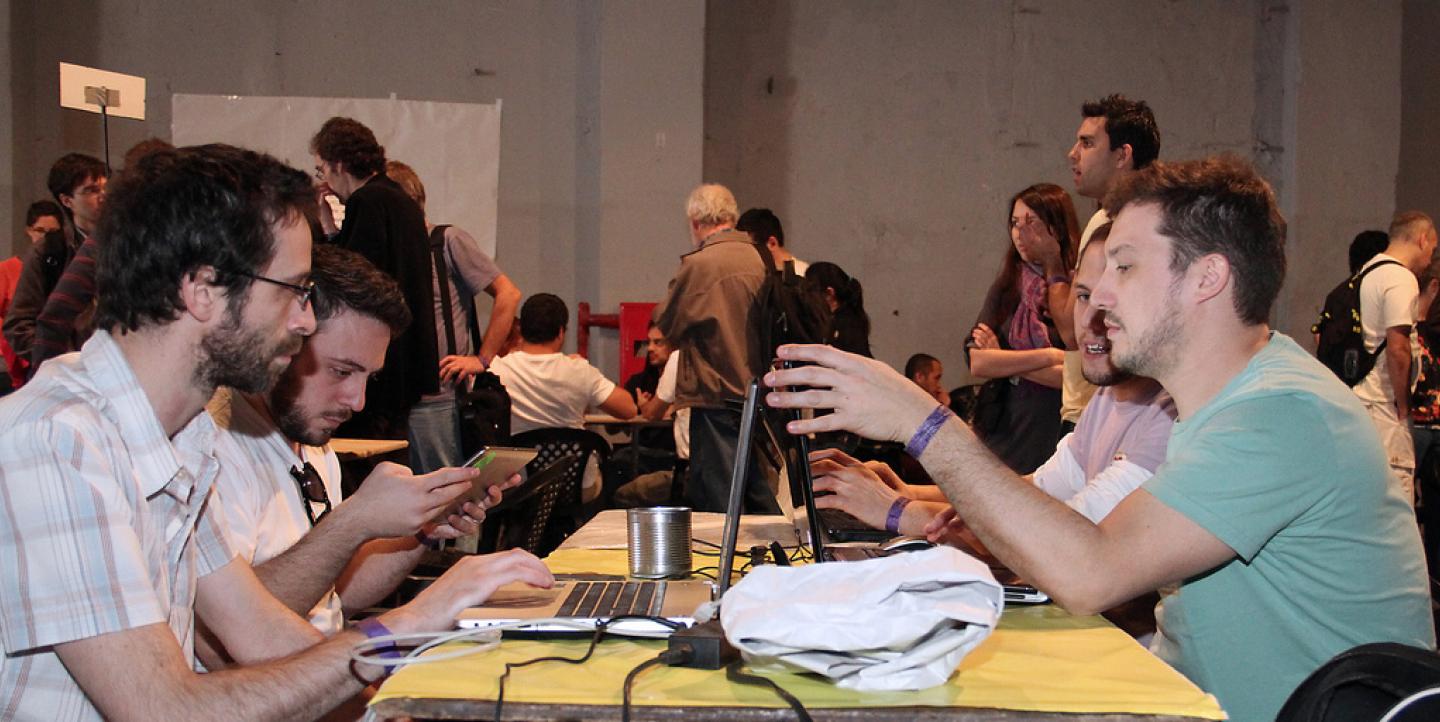It’s not every day that lawyers work together with journalists, developers and designers to solve a problem.
But in August, lawyers from The Civil Association for Equality and Justice (ACIJ), an Argentine NGO dedicated to supporting disadvantaged groups and strengthening democracy in the country, came to the Hacks/Hackers Buenos Aires Media Party seeking assistance. They wanted to take a closer look at data that was stuck in PDFs. But the data – thousands of affidavits from officials from the executive branch of the Buenos Aires city government – had been saved as images, making it difficult to sort or look for patterns in the information.
The Media Party, a three-day event designed to “reinvent the media,” was the perfect place for the lawyers to meet and learn from data journalists and other experts. The event brought together people in a range of sectors from across the world to make use of free software, collaborative culture, open data, innovation in media, transparency and the creation of open standards. This year, open government and the use and misuse of public data were central themes. Data journalist Mariano Blejman organized the event as part of his ICFJ Knight International Journalism Fellowship.
At the Media Party hackathon, ACIJ New Technologies Manager & Justice Project Coordinator Juan Ortiz quickly linked up with five volunteers, including journalists, NGO workers and programmers. Among them were open government technologist Waldo Jaquith and programmer and 2013 Knight-Mozilla OpenNews Fellow Manuel Aristarán, both experts on the opening of PDFs. Aristarán is the creator of Tabula, an open source tool for extracting tables from PDF files. They later brought journalist Gustavo Ajzenman to the team. The group explored a number of ideas, finally choosing a novel one suggested by Ajzenman: to crowdsource the opening of the affidavits. Through a custom platform, citizens could help ACIJ extract the meaningful data from each PDF and fill in a structured, open spreadsheet.
Today, Ajzenman is working with the ACIJ team to develop a prototype for crowdsourcing analysis of the affidavits based on crowdata, another tool created by Aristarán. Creating a model specifically intended to engage citizens is a new approach for the NGO. When the platform is up and running, it will be the first time it has shared core tasks with the public.
“It was so lucky [that we were] able to meet these people at the hackathon,” Ortiz said. “We wouldn’t have met [them] otherwise because we’re an organization made up mostly of lawyers.”
Global media innovation content related to the projects and partners of the ICFJ Knight International Journalism Fellows on IJNet is supported by the John S. and James L. Knight Foundation.
Image by Ramiro Chanes, courtesy of HHBA.

